Brexit: Boris Johnson's letter to the EU
- Published
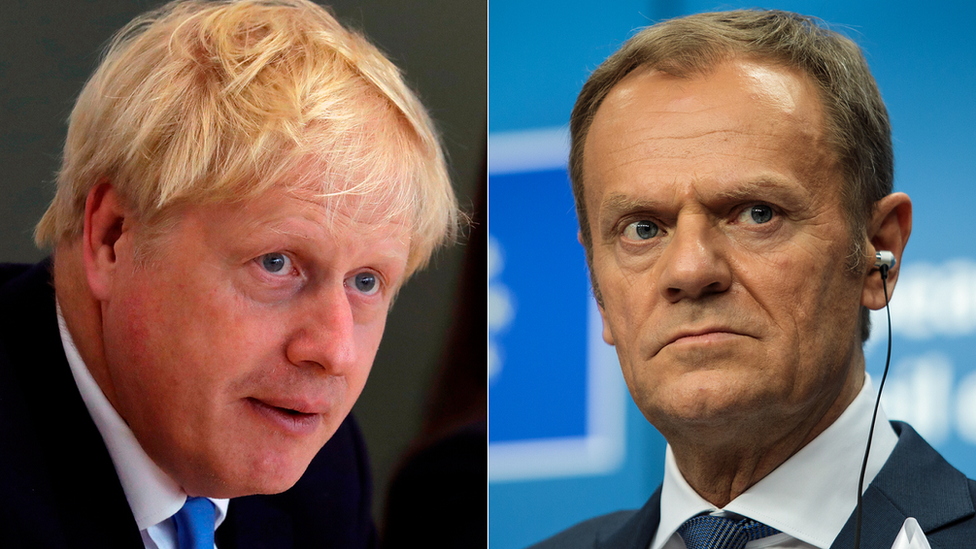
Prime Minister Boris Johnson has written to European Council President Donald Tusk, calling for the Irish backstop to be scrapped. BBC Northern Ireland's economic and business editor, John Campbell, and the Reality Check team have been looking at some of the key passages and what they mean.
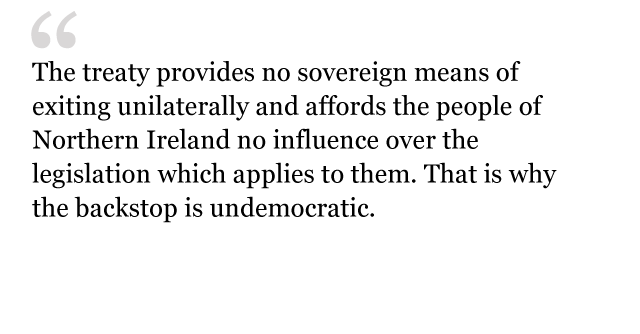
Boris Johnson's focus here is the backstop. That's the insurance policy - agreed by Theresa May and the European Union (EU) - to avoid a hard Irish border.
It would come into effect after Brexit if the UK and the EU failed to reach a trade deal that would keep the border between Northern Ireland and the Republic of Ireland as open as it is now.
It would keep:
the whole of the UK in a customs union with the EU
Northern Ireland aligned to some rules of the EU single market
Mr Johnson identifies two problems with this.
First, the UK could not unilaterally bring the backstop to an end, unless it could be proven that the EU was acting in bad faith. In March, the attorney general, Geoffrey Cox, concluded if the UK and EU negotiated in good faith but still could not reach an agreement on their long-term relationship, the UK would have "no internationally lawful means" of leaving the backstop without EU agreement.
Secondly, there is the issue of EU single market rules continuing to apply in Northern Ireland. Those rules are set in Brussels, rather than Belfast, meaning Northern Ireland voters would have no direct influence. However, the EU can point to a specialised committee of UK and EU representatives that would be set up to oversee the implementation of the backstop and review cross-border cooperation. Reporting to that committee would be a working group to act as a forum for consultation. And taken together, these arrangements could be interpreted as giving the UK a decision-shaping role in regard to EU rules covered by the backstop.
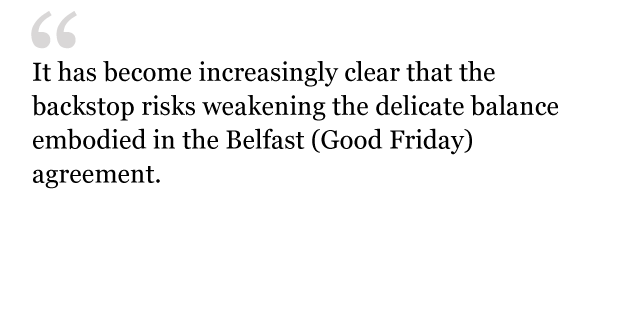
Theresa May accepted a backstop was needed to protect the Good Friday agreement.
Widely seen as marking the effective end of Northern Ireland's Troubles, the agreement established:
a devolved power-sharing administration
new institutions for cross-border cooperation
structures for improved relations between the British and Irish governments
But Mr Johnson takes a sharply different view from his predecessor. He has accepted the argument, advanced in a series of papers and articles by Lord Trimble, external and other senior unionists, that the backstop would breach one of the central principles of the Good Friday agreement - there should be no change in Northern Ireland's constitutional status without the consent of a majority of voters.
Nationalists, on the other hand, say this principle applies to a vote on a united Ireland only.
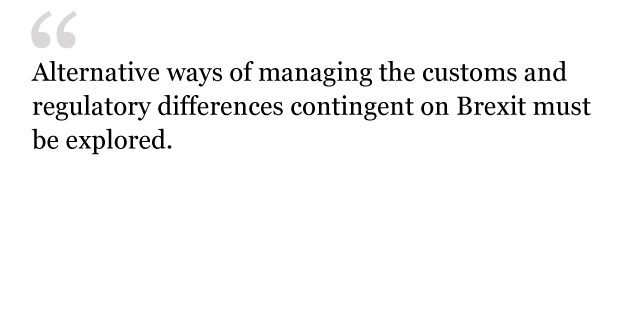
The border policy most favoured by Brexit supporters, "alternative arrangements" refers to a package of technical and administrative solutions to keep the border open without the UK having to stick closely to EU rules and regulations.
The EU has committed to exploring alternative arrangements - but only once a withdrawal agreement containing the backstop has been passed.
The UK government, meanwhile, has appointed a panel of experts to advise on alternative arrangements - but it has not yet published a report.
Separately, a group led by two Conservative MPs has published an alternative arrangements plan.
It suggested the widespread use of trusted-traders schemes for cross-border businesses, which would minimise the need for any checking of goods.
It also said any customs checks could happen "inland" at warehouses or company premises, using mobile inspection teams.
And use of customs brokers is proposed for small businesses, with the very smallest being exempt from any new procedures.
However, this plan was dismissed by Northern Ireland business groups as unrealistic and lacking credibility.
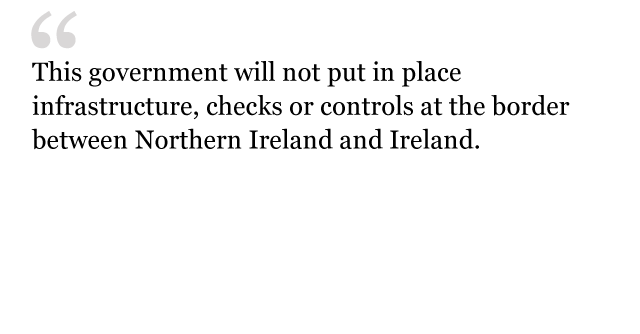
Mr Johnson repeats the long-standing UK commitment not to have infrastructure at the border.
But in the EU's view the UK has already made a commitment that goes beyond this.
In the joint report of 2017 (effectively an interim deal), the UK committed to no physical infrastructure or "related checks and controls".
For the EU, this means no new checks and controls anywhere on the island of Ireland, be it at facilities away from the border or at company premises.
But Brexit supporters think this commitment went too far and should have been limited to no checks at the border itself. And the wording of his letter suggests Mr Johnson agrees.
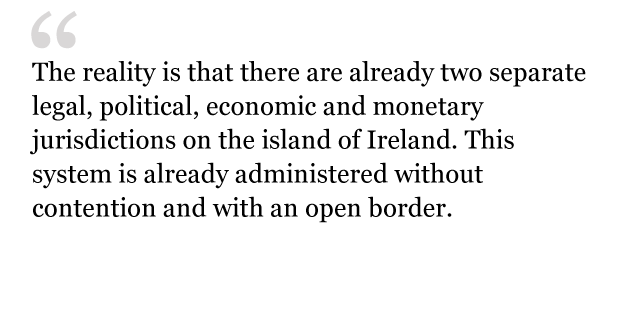
Like the rest of the UK Northern Ireland uses the pound, while across the border the euro is the currency.
But the UK and Ireland are currently part of a single EU VAT area.
This means that when a UK product is exported to another EU country, VAT is paid where the product is consumed.
But if the UK left the EU, VAT liabilities would have to be assessed by customs officials at borders - unless some new arrangement is in place.
One solution would be for the UK to have continued access to the EU's VAT Information Exchange System (VIES).
However, that would be an unprecedented arrangement - not even Norway, which has a major VAT deal with the EU, has full access to the VIES.


